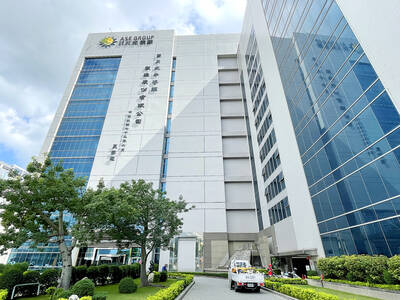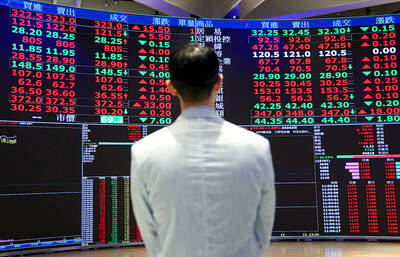While Taiwan’s economic outlook for the year remains bullish, economists have expressed mixed opinions on whether the central bank should continue with its loose monetary policy to spur economic recovery.
Chiou Jiunn-rong (邱俊榮), a professor of economics at National Central University, said the government should consider tightening credit as soon as possible as the economy has evidently recovered from the global financial crisis.
“It is a necessity for the loose monetary policy to end now. Interest rates have been kept at a record low for an extended term, but it hasn’t boosted domestic investment. Rather, it has fueled soaring housing prices,” Chiou said by telephone.
He said the targeted credit controls the central bank imposed earlier on local banks to curb real-estate speculation did not have the desired result, adding that rising property prices would harm long-term economic development.
The economy has entered a “liquidity trap,” wherein interest rates are so low that relaxed monetary policy is no longer able to stimulate the economy, Chiou said, adding that low interest rates could no longer boost domestic investment.
Citing Ministry of Finance (MOF) data, Chiou said imports in May last year were still in very bad shape — falling 31.4 percent from the previous year — evidence that the government’s loose monetary policy was not working effectively.
Chen Miao (陳淼), director of the macroeconomic forecasting center at the Taiwan Institute for Economic Research (台經院), also panned the government for its “overly loose” monetary policy, saying that issuing certificates of deposit (CD) was not a long-term solution to excess liquidity in the market.
“We haven’t actually achieved the type of investment that the central bank is hoping to attract by lowering interest rates, as reflected in the fact that there’s too much excess liquidity in the market,” Chen said in English.
He said that curbing rising property prices was not the central bank’s priority, adding that the monetary regulator should focus more on economic growth when adjusting its policy rates.
Chen was responding to central bank concerns that raising interest rates could suppress the real estate market in other regions, where housing prices are still rather low.
“By raising interest rates, [the central bank] will also effectively increase the income of fixed income families. There are definitely many more bank depositors than lenders. By not increasing interest rates, they are forcing money out of the banks to go somewhere else,” he said in English.
Standard Chartered Bank economist Tony Phoo (符銘財), however, said that although monetary policy was relatively loose at present, the central bank has been absorbing excess funds in the market by issuing CDs.
The central bank is planning to issue NT$100 billion (US$3.12 billion) in 364-day CDs on Monday, after having already sold NT$200 billion, marking its third sale of such CDs since April 6, which it said had the same effect as “hiking the required reserve ratio by 0.79 percentage points.”
“It would be better if interest rates were not raised this year,” Phoo said by telephone, adding that the government must remain prudent with its monetary policy amid concerns about fallout from the unstable financial situation in Europe.
Rick Lo (羅瑋), senior vice president for macroeconomic research at Fubon Financial Holding Co (富邦金控), said interest rates should remain at current low levels as the global economic recovery is “rather fragile” amid the alarming European debt crisis.
Whether the government should raise interest rates is contingent on the global financial situation, Lo said, adding that signs of global economic recovery would be more certain in the fourth quarter of this year or later.
Phoo said interest rates should not be raised until economic growth, inflation and unemployment figures all return to pre-crisis levels.
“Currently, domestic investment and exports have yet to match the 2008 levels,” he said.
MOF data shows that exports totaled US$21.9 billion in April, while imports were US$19.4 billion. That compared with US$25.2 billion and US$$25.1 billion respectively in August 2008.
“In addition, employment has not recovered as fast as the economy. The job market recovery has focused only on the high-tech sector,” Phoo said.

EXPANSION: The investment came as ASE in July told investors it would accelerate capacity growth to mitigate supply issues, and would boost spending by 16 percent ASE Technology Holding Co (ASE, 日月光投控), the world’s biggest chip assembly and testing service provider, yesterday said it is investing NT$17.6 billion (US$578.6 million) to build a new advanced chip packaging facility in Kaohsiung to cope with fast-growing demand from artificial intelligence (AI), high-performance-computing (HPC) and automotive applications. The new fab, called K18B, is to commence operation in the first quarter of 2028, offering chip-on-wafer-on-substrate (CoWoS) chip packaging and final testing services, ASE said in a statement. The fab is to create 2,000 new jobs upon its completion, ASE said. A wide spectrum of system-level chip packaging technologies would be available at

Taiwan’s foreign exchange reserves hit a record high at the end of last month, surpassing the US$600 billion mark for the first time, the central bank said yesterday. Last month, the country’s foreign exchange reserves rose US$5.51 billion from a month earlier to reach US$602.94 billion due to an increase in returns from the central bank’s portfolio management, the movement of other foreign currencies in the portfolio against the US dollar and the bank’s efforts to smooth the volatility of the New Taiwan dollar. Department of Foreign Exchange Director-General Eugene Tsai (蔡炯民)said a rate cut cycle launched by the US Federal Reserve

HEAVYWEIGHT: The TAIEX ended up 382.67 points, with about 280 of those points contributed by TSMC shares alone, which rose 2.56 percent to close at NT$1,400 Shares in Taiwan broke records at the end of yesterday’s session after contract chipmaker Taiwan Semiconductor Manufacturing Co (TSMC, 台積電) hit a fresh closing-high amid enthusiasm toward artificial intelligence (AI) development, dealers said. The TAIEX ended up 382.67 points, or 1.45 percent, at the day’s high of 26,761.06. Turnover totaled NT$463.09 billion (US$15.22 billion). “The local main board has repeatedly hit new closing highs in the past few sessions as investors continued to embrace high hopes about AI applications, taking cues from a strong showing in shares of US-based AI chip designer Nvidia Corp,” Hua Nan Securities Co (華南永昌證券) analyst Kevin Su

Nvidia Corp’s major server production partner Hon Hai Precision Industry Co (鴻海精密) reported 10.99 percent year-on-year growth in quarterly sales, signaling healthy demand for artificial intelligence (AI) infrastructure. Revenue totaled NT$2.06 trillion (US$67.72 billion) in the last quarter, in line with analysts’ projections, a company statement said. On a quarterly basis, revenue was up 14.47 percent. Hon Hai’s businesses cover four primary product segments: cloud and networking, smart consumer electronics, computing, and components and other products. Last quarter, “cloud and networking products delivered strong growth, components and other products demonstrated significant growth, while smart consumer electronics and computing products slightly declined,” compared with the